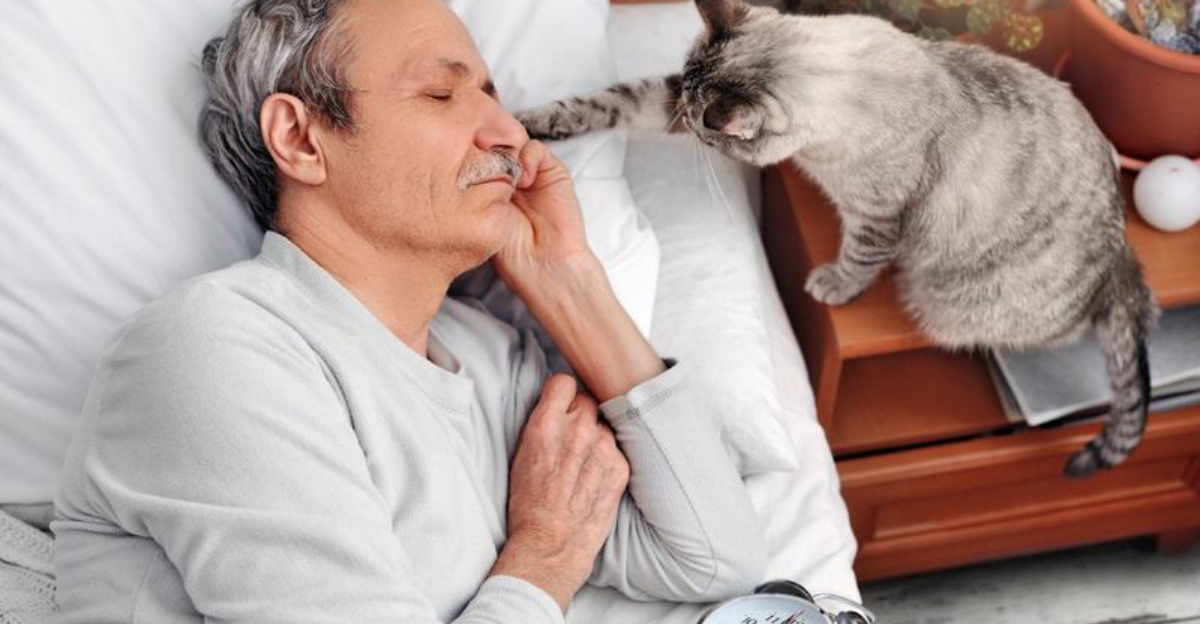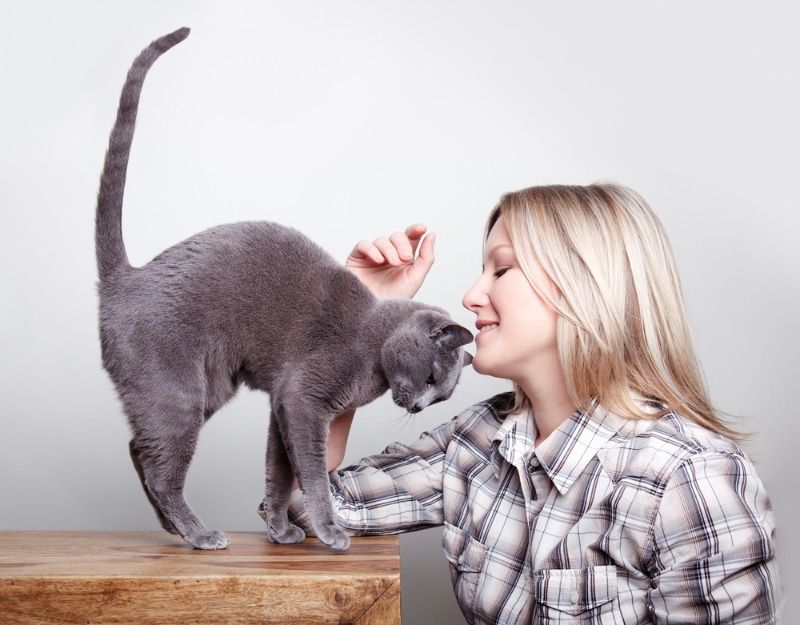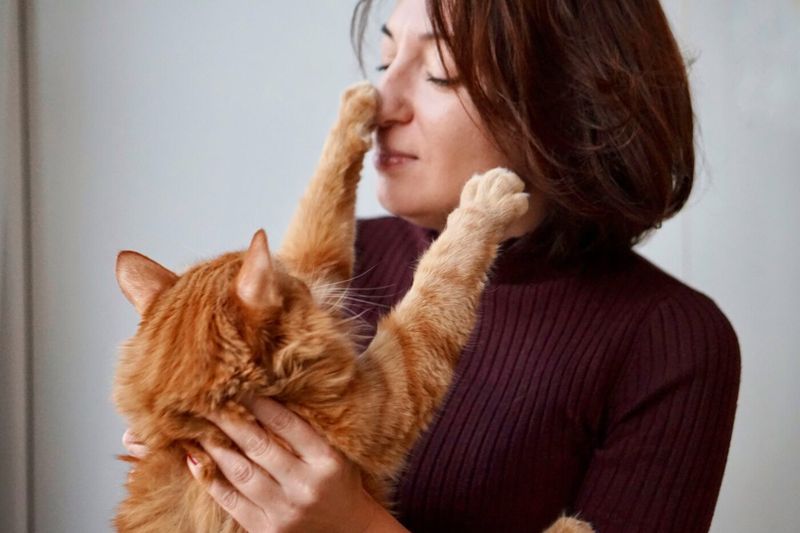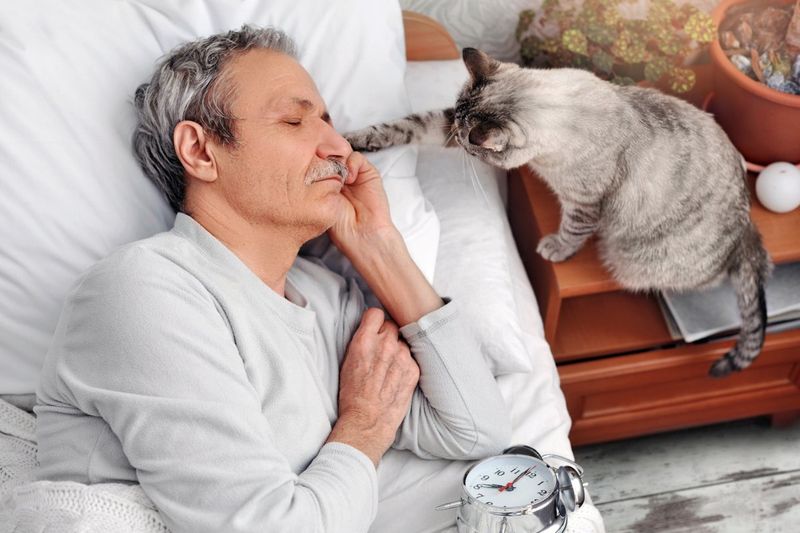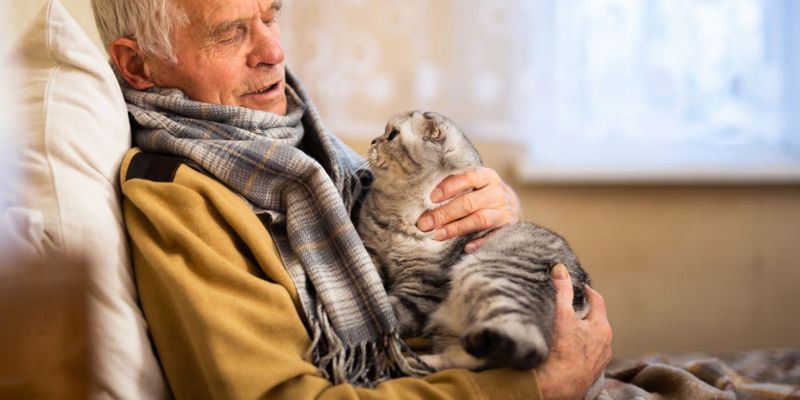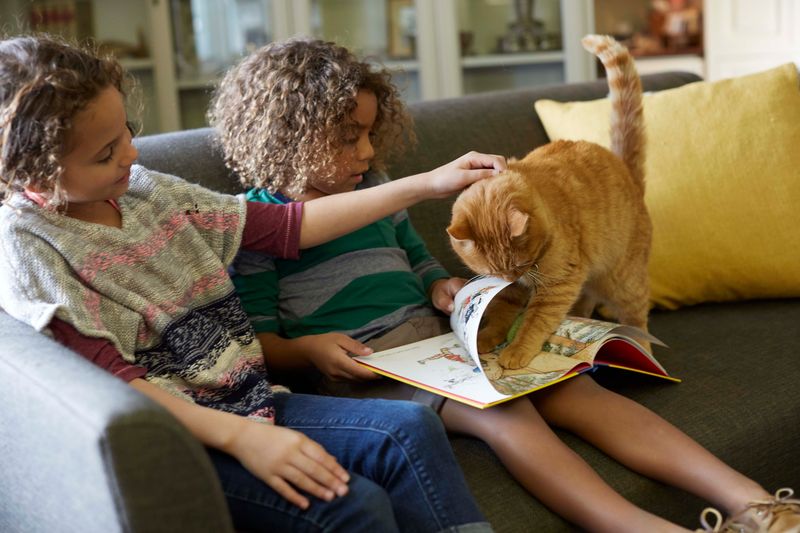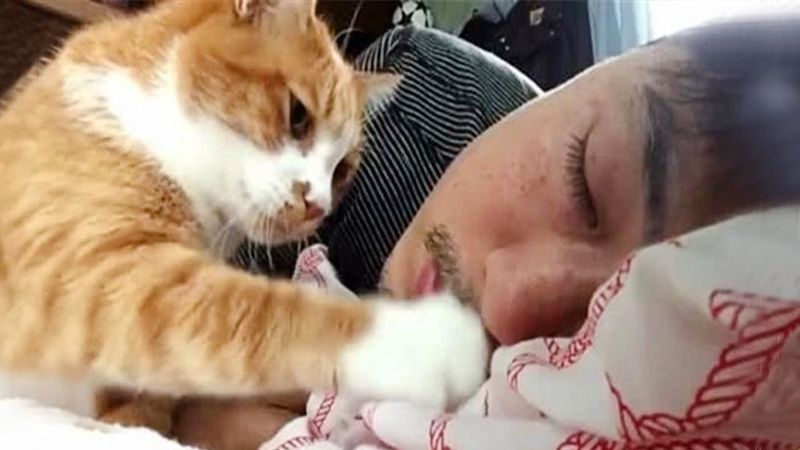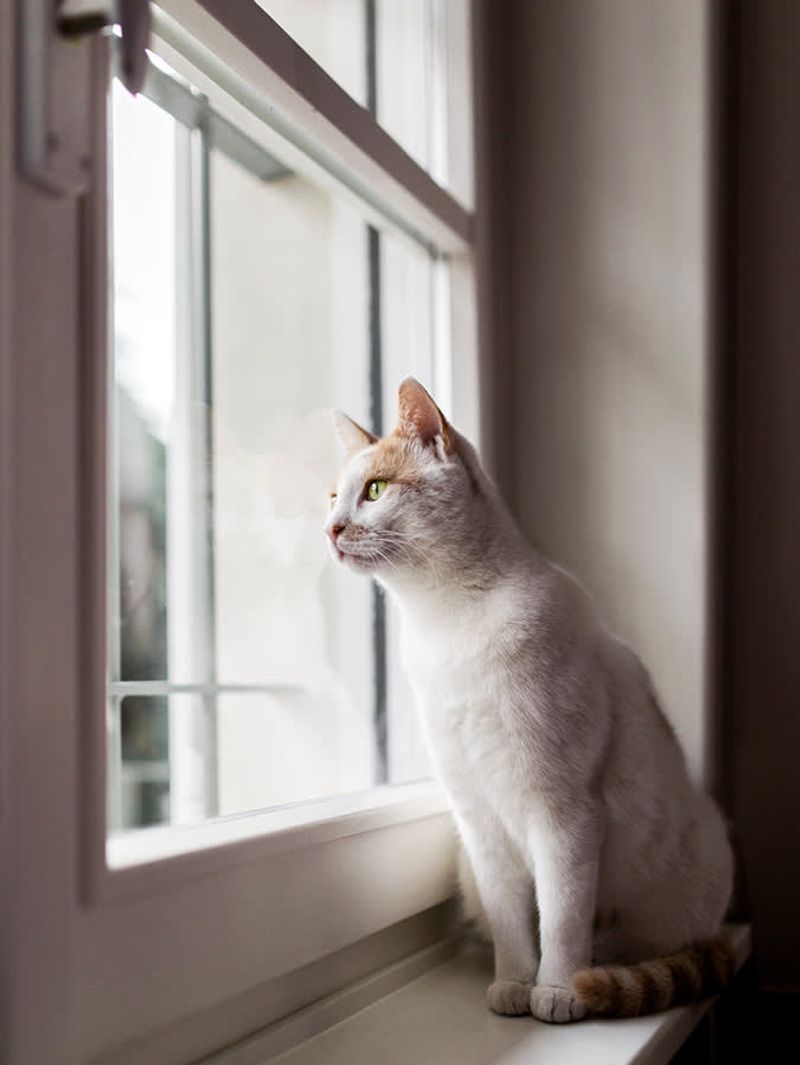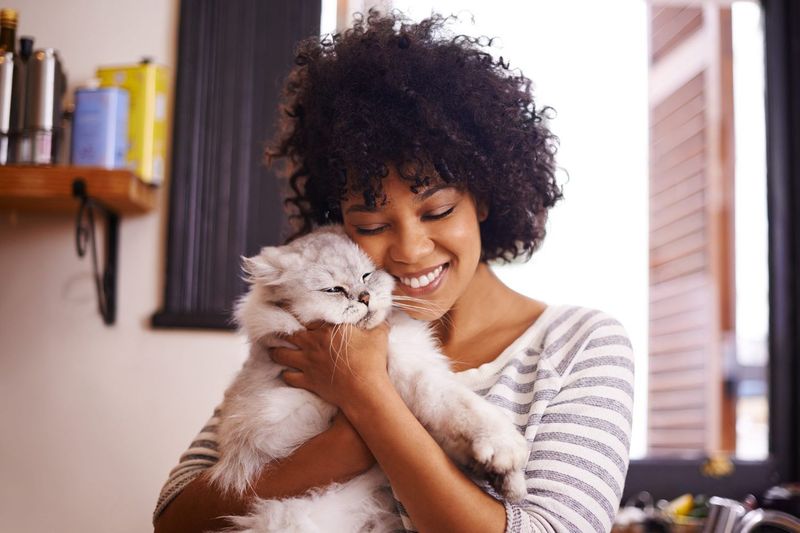📖 Table of Content:
Waking up to a soft paw patting your cheek might be confusing, amusing, or even heartwarming. For cat owners, this quirky behavior can seem like part of the mysterious charm that feline friends bring to our lives. But as odd as it may feel at 3 a.m., your cat’s gentle face tap may actually be loaded with meaning.
Cats are far from random in their actions. Even subtle gestures like a light tap or a soft poke can be intentional communications rooted in instinct, emotion, or habit. These tiny moments, while often overlooked, offer a glimpse into your cat’s needs, thoughts, and even affection.
Understanding what your cat might be trying to say can help strengthen your bond and reduce frustration — especially if you’re being woken up night after night. Below, we explore eight possible messages behind those unexpected feline wake-up calls.
1. “I want attention.”
Affection-seeking cats use their paws to make a gentle connection, especially if they’re feeling a little lonely. Many felines crave interaction — even if it’s just a head scratch or soft petting — and they’re not shy about requesting it in their own way. Instead of meowing loudly or knocking things over, a tap to the face can be their quiet way of saying, “Notice me.” Some cats may even purr as they do it, reinforcing that this is a positive, loving interaction. This is particularly common with cats who are closely bonded to their humans and feel safest when near them. If this becomes a pattern, consider giving your cat more one-on-one time during the day to reduce their nighttime demands. Remember, your sleepy face is just a convenient target when they miss you.
2. “You’re in my spot.”
Territorial by nature, cats take their resting places seriously — and that includes the bed. If you happen to shift into their preferred pillow zone or snuggle corner, they may gently tap your face to reclaim what’s rightfully theirs. This isn’t meant to be aggressive; rather, it’s a calm protest to restore their comfort. Cats often rotate their sleeping spots, and once they claim one as their own, they expect you to respect it — even if it’s half your pillow. You might notice them kneading the area afterward or curling up beside you with satisfaction. Understanding their body language can help you tell the difference between a tap of affection and a territorial nudge. Respecting their preferences can often lead to more peaceful nights (for both of you).
3. “Hey, it’s breakfast time.”
Food motivation reigns supreme for most cats, especially those on a set feeding schedule. As creatures of habit, cats often remember the exact time they usually get fed — down to the minute. If you ever fed them early once, even by accident, chances are they’ve filed that moment away as a new norm. Face-tapping can be a polite (or persistent) way of asking, “Is it food time yet?” Some cats will even escalate their tactics if the tap doesn’t get a response, moving on to meows or walking across your body. This behavior is especially common in the early morning, when your cat’s internal alarm clock goes off before yours. Understanding this can help you manage their expectations with a more consistent routine or automatic feeder.
4. “Something’s not right.”
Hyper-aware of their surroundings, cats can detect changes humans may not immediately notice. Whether it’s a strange noise, an unusual smell, or a subtle shift in your breathing pattern, your cat may gently tap your face out of concern. This behavior is especially seen in cats who are strongly bonded to their humans and have a protective streak. Tapping could be their way of checking in, asking, “Are you okay?” Some pet owners even report their cats waking them during medical episodes like low blood sugar or sleep apnea. While not all cats are instinctive caregivers, many are surprisingly intuitive. So next time your cat taps you with a sense of urgency, take a moment to scan the room — they might be onto something.
5. “Play with me!”
Restless cats, particularly young or highly active ones, sometimes see the quiet of night as the perfect time for play. Instead of vocalizing or sprinting around the house, they may opt for a more direct approach — tapping your face to get your attention. To them, your stillness during sleep might just look like an invitation to pounce or initiate interaction. Tapping can be the feline version of nudging you awake like a child on a weekend morning. If this is a regular pattern, your cat might not be getting enough mental or physical stimulation during the day. Consider engaging in evening play sessions to help burn off that extra energy before bedtime. An active cat during the day is more likely to let you sleep in peace.
6. “You moved, are you awake?”
Curiosity plays a big role in a cat’s behavior, especially when it comes to their human’s odd sleeping habits. If you twitch, turn, or sigh in your sleep, your cat may gently tap your face to check whether you’re awake or just dreaming. This investigative paw tap is a way of saying, “Are you back in the world yet?” Cats often watch us closely, particularly at night when everything else is quiet. It’s not unusual for a cat to simply observe before reaching out for a gentle nudge. If your reaction is positive — a pet, a word, or a stretch — they may take that as permission to interact further. In a way, it’s their version of morning small talk.
7. “I’m bored.”
Nighttime can be dull for an under-stimulated cat, especially if they’ve spent much of the day sleeping. When boredom strikes, even a snoozing human becomes an object of curiosity and potential entertainment. Tapping your face may be less about you and more about breaking the monotony. It could be the beginning of a game — at least in their eyes. Some cats will follow up with batting at your hair, pawing at your nose, or even bringing you a toy. This behavior usually stems from a lack of enrichment during waking hours. Solving it may be as simple as adding more playtime, climbing structures, or interactive toys to their routine.
8. “I love you.”
At the heart of it all, sometimes your cat’s tap is just a sign of affection. In feline body language, gentle touch — especially to the face — is a bonding gesture, reminiscent of how kittens interact with their mothers. They may be expressing comfort, closeness, and even admiration. Often, this kind of tap will be slow, accompanied by soft purring, blinking, or curling up next to you. It’s not a demand or a complaint, just a quiet way of saying, “I feel safe with you.” These moments can be some of the sweetest, especially when you realize your cat sees you as part of their family. Cherish these taps — they’re little tokens of feline trust.
